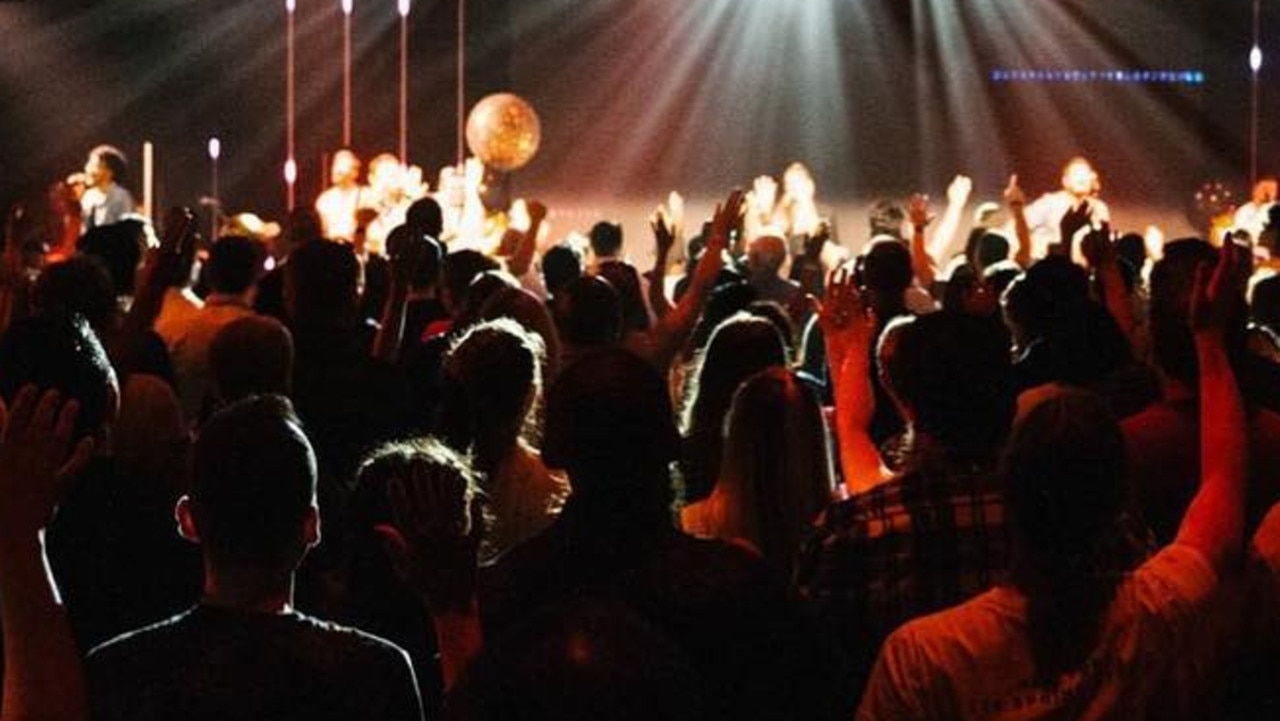Seven boys got into this car, only one walked away unscathed
Seven teens were crammed in this overloaded car when it crashed on a rural Queensland road. The only one to climb from the wreckage unscathed has likened it to ‘waking up in a war bunker and everyone else has been gassed’.

QLD News
Don't miss out on the headlines from QLD News. Followed categories will be added to My News.
IT took less than three seconds – three terrifying seconds that irrevocably altered the history of seven families on the May Labour Day weekend in 2009.
A horrifying late-night car crash on the outskirts of Toowoomba, on the Darling Downs, seared itself into the state’s road toll, and into the minds of the residents of the city 127km west of Brisbane.
There were seven teenage schoolboys in one overloaded car. Two in the boot. A head-on highway collision. And devastation everywhere.
Selfies, Tik Toks: COVID propels TV translator to fame
Heartbreaking untold story of Hannah Clarke’s final days
Those blink-of-an-eye seconds claimed the lives of three of the boys and left two more with critical injuries. The driver was also badly hurt.
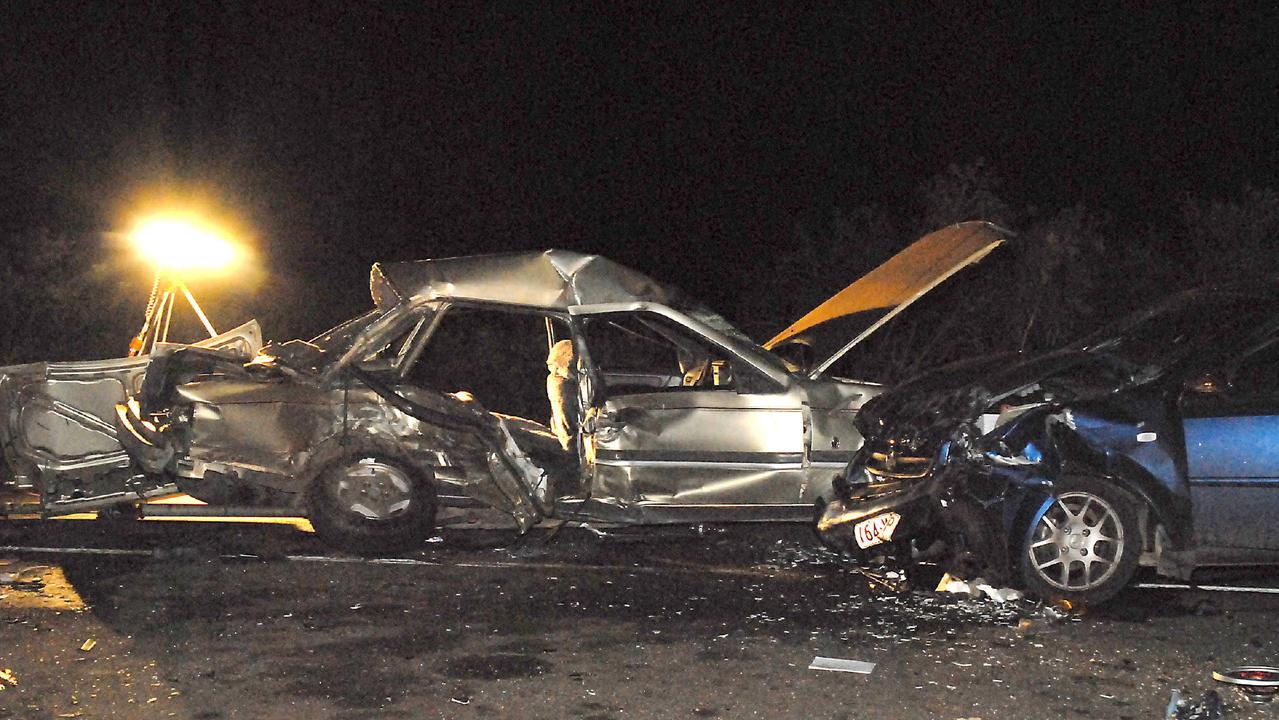
But what of an uninjured survivor? How does life go on after walking away unscathed from a triple fatality collision?
Lech Blaine, then 17, was the front-seat passenger in the overloaded gold Ford Fairlane sedan and the only one to emerge from the wreckage physically unharmed.
His mental trauma, however, would last far longer.
Blaine, now 29 and based in Sydney, has spent five years writing a memoir simply titled Car Crash, that lays bare the private fallout inside the public tragedy that changed his life.
It’s his first book and it unveils his agonising grief and survivor’s guilt, insomnia and secret spiral into depression and suicidal ideation.
Blaine began the book at the start of 2016, writing most of it while running a three-star motel in Bundaberg.
Speaking from his Bondi Junction apartment, Blaine says the book has taken a long time to craft, evolving greatly over the years, as he gradually grew in confidence as a writer.
He also expanded the range of the memoir to include a broader portrait of his life in terms of friendship, family and first love.
“I didn’t want to trivialise the car accident by writing about some of the more normal or mundane things about being a teenage boy or being in relationships, just usual sort of puberty stuff,’’ Blaine says.
“That didn’t really seem deserving of my attention when it was measured up against the grief.
“But I think if the story had just been the trauma of that event then it would have been a lot harder for people who haven’t been through an experience like that to connect with.
“Now, it’s a lot more personal. It wasn’t the sort of book I could pump out in six months.’’
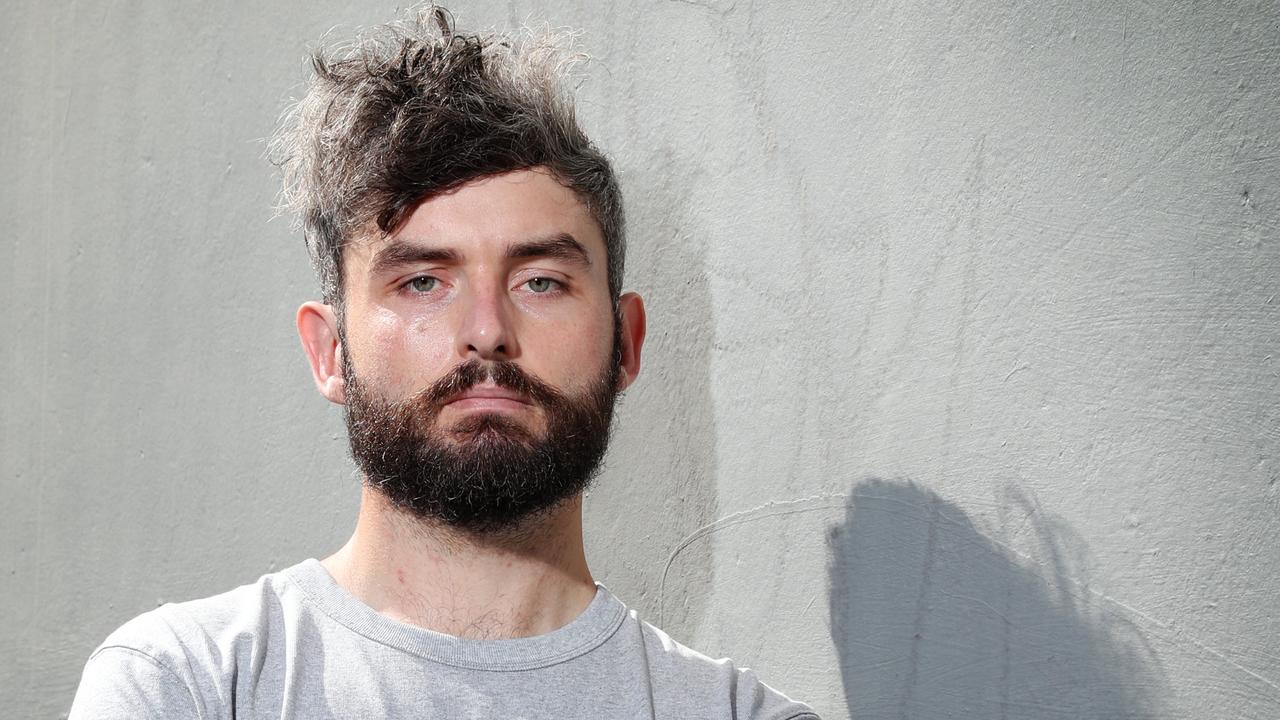
Blaine submitted the first chapter – an unflinching and confronting description of the night of the accident - to the Scribe Nonfiction Prize for Young Writers in 2016.
It was short-listed and caught the attention of publishers at Black Inc. who offered him a book deal.
The chapter was also published in the 2017 Griffith Review and was included in The Best Australian Essays 2017.
The boys, all students at Toowoomba’s Downlands College and St Mary’s College, had been at a low-key celebratory barbecue on an acreage property at Highfields, north of Toowoomba, after watching a victorious Downlands First XV rugby game. Three girls were also in attendance.
A plan to attend a nearby party was hatched, with the intention to split the group of 10 people into two cars. But as they were leaving, “a chink in our magical thinking’’, the girls were driving in the other direction and needed to make it home by curfew. Which left seven boys now divided into five car seats.
“Teenage boys in country towns don’t stage committee meetings before climbing into car boots, especially when the destination is 10 minutes away,’’ Blaine writes.
Doors were opened and slammed. He says he didn’t watch nor hear the process of two boys getting into the car’s boot.
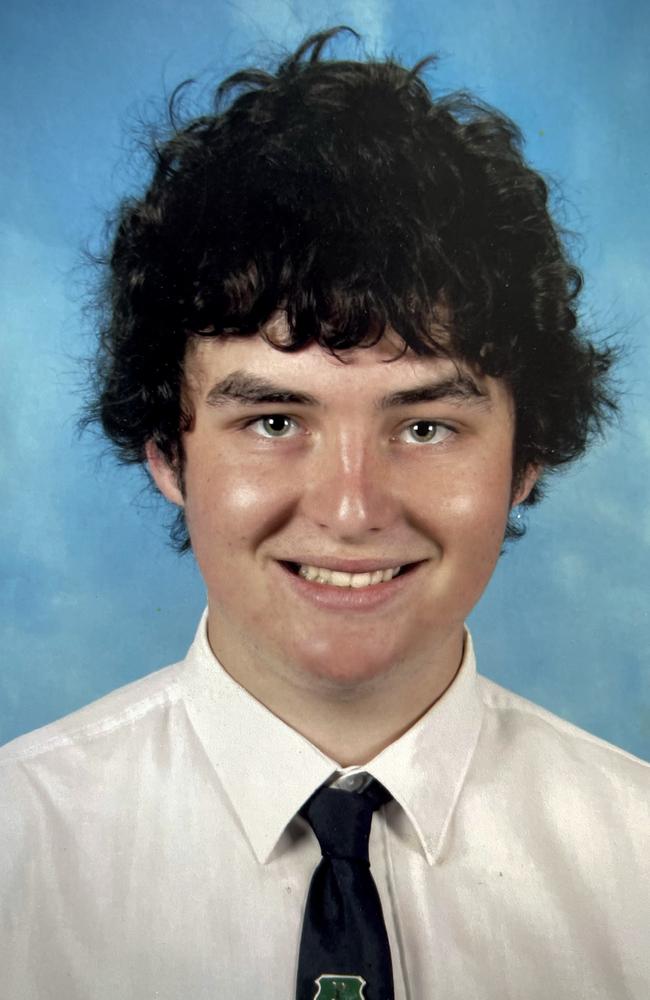
In describing the immediate aftermath of the collision, Blaine writes he didn’t get the “luxury of a concussion’’.
Instead, “dazed and amazed to be alive’’, he experienced the “loneliest moment of my life … like waking up in a war bunker where everyone else had been gassed’’.
The crash claimed the life of William Hutchinson, 16, who was sitting in the back right seat and he was killed on impact.
In the early hours of the next morning, Hamish Stewart, 17, who had been in the car’s boot, died.
Five days later, Henry Keevers, 16, sitting behind Blaine in the back seat, died as a result of severe brain injuries.
With his only visible injuries a grazed hand and chipped tooth, his heartbroken family turned off his life support machine and donated his organs.
Tim Coogan, 16 – Blaine’s best friend and schoolmate from St Mary’s College – seated in the middle back seat of the Fairlane – was transferred to Brisbane’s Princess Alexandra in a critical condition. He remained in a coma for months and suffered a permanent brain injury.
Nick Bergen, 17, a star rugby player at Downlands College, who was also in the boot, was thrown clear of the vehicle and was found 10m away by Blaine.
He came out of an induced coma the following week.
The Fairlane’s owner and driver, Dominic Hodal, 17, suffered serious injuries but recovered. A 58-year-old male driver of the other vehicle, a blue Holden Viva, was also injured.
Hodal was charged with five counts of dangerous driving causing death or grievous bodily harm and spent two years in a state of “legal and existential limbo’’.
Despite widespread rumours circulating about the crash – that Hodal had been drunk and speeding, that the vehicle rolled and burst into fire, that the boys were on drugs, drag racing, that someone had grabbed the steering wheel – the court heard Hodal was sober, recording a blood alcohol reading of 0.00, and was driving at 94km/h in a 100km zone on the New England Highway.
Forensic investigators testified the Fairlane’s back tyre drifted onto a gravel driveway, spinning out, a lapse that lasted an estimated 0.7 to 0.8 of a second.
It took less than three seconds for the accident to happen.
It was, simply, and perhaps more terrifyingly, a “catastrophic moment of inattentiveness and overcorrection’’.
Hodal was ultimately found not guilty on all charges in the Toowoomba District Court in August 2011.
Blaine, a “second-generation atheist’’, grew up in country Queensland, raised in a series of pubs leased by his parents.
He wanted to be a writer from a young age and write the “great Australian novel”.
He also showed an early interest in politics and dreamt of being the Prime Minister “from as young as I can remember’’.
His parents, Lenore (who died in 2018) and Tom (who died in 2011), met at a backyard barbecue in Ipswich circa 1979. They married and suffered six miscarriages and so became foster carers instead, accepting nearly 100 foster care placements over 25 years.
They relocated to the bush, leasing three rundown pubs across country Queensland, with three constant foster siblings, Steven, John and Hannah, remaining with the family from infancy until adulthood.
In January 1992, Lech, their “miracle baby” was born, his parents’ only biological child.
His unusual first name was bestowed by Tom, then a publican in Wondai, who named his son after his doppelganger, the Polish president at the time, Lech Walesa, (“a fat battler with a thick moustache’’) who was also a revolutionary trade unionist.
Lech’s grandfather had been a blacksmith on the Ipswich railway and vice-president of the Queensland Ironworkers Union.
“This is why a bartender in Wondai dedicated his long-awaited heir to Eastern Europe’s great emancipator,’’ Blaine writes.
The family moved to Toowoomba in 1996 where his dad was a publican and also a local Labor Party official. (He was also rugby league legend Allan Langer’s uncle.)
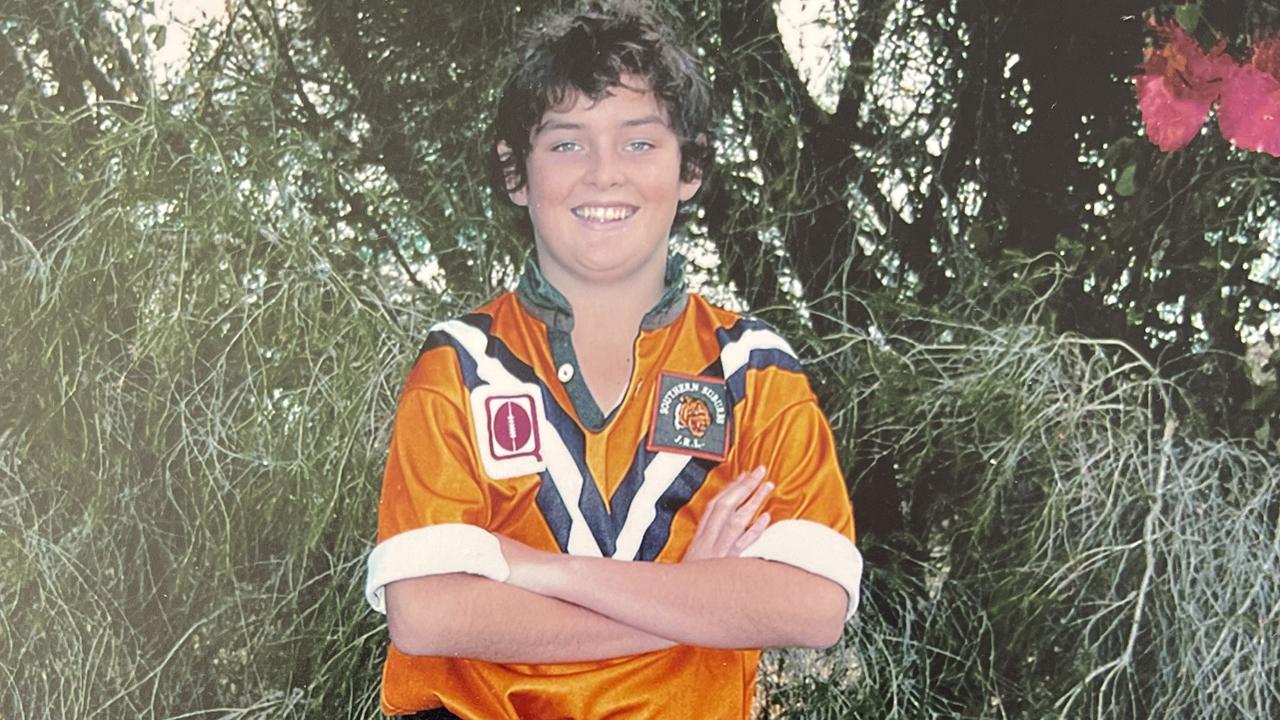
Politics and sport were the main subjects of conversation between father and son, with passionate dinner table debates.
As a child, Blaine always read books and “imagined myself making one’’.
He started writing articles about sport for the local newspaper when he was 13 and, from age 14, he loved authors such as Helen Garner and Christos Tsiolkas.
Blaine’s childhood is the subject of his next book, another memoir, and prequel to Car Crash.
It examines the intriguing story of his three constant foster siblings, whose biological parents were religious zealots, Mary and Michael Shelley, who met in a Sydney hospital’s psychiatric ward and were considered dangerous by the Department of Child Safety.
When Blaine was 10, the Shelleys discovered the location of their biological children and began relentlessly harassing the family.
Similarly to Car Crash, this book’s first chapter has been published in the Griffith Review.
Blaine, who won the 2017 Queensland Premier’s Young Publishers and Writers Award and 2019 Brisbane Lord Mayor’s Emerging Artist Fellowship, relocated to Sydney in February last year to write his second book, receiving Australian Council of the Arts funding to do so.
“Michael and Mary Shelley were from Sydney and spent a lot of time in the eastern suburbs,’’ Blaine says.
“They moved to a place across the road from Centennial Park in Bondi Junction, which is the same area where I now live.
“I’d never lived in Sydney before so I wanted to be able to understand the place emotionally.’’
Blaine also has a third book, again a memoir, planned about the years following the crash, about the deaths of his parents and “the nature of financial and genetic inheritances’’ that includes running his father’s motel in Bundaberg (and selling it in 2018), selling his mother’s house and organising her nursing home admission.
Blaine studied political science and English literature “on and off’’ at university but never finished because he moved to Bundaberg.
He names author, journalist and teacher Kristina Olsson as his mentor.
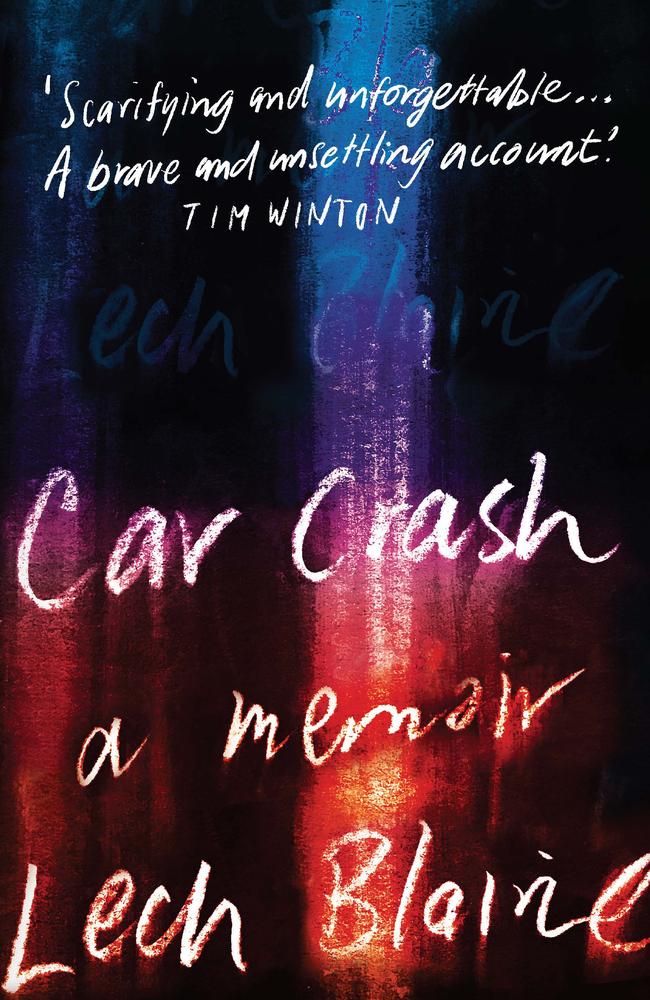
“I’d love to write novels and when I first started writing I thought I’d write fiction but these stories are there,’’ Blaine says.
“When I was 14 or 15, I didn’t think my life would ever be worthy of literature. But, even before the accident, it totally was.
“Where I grew up in Toowoomba, it’s a brilliant place to write about because it’s so physically distinct and there are so many strong personalities.
“One of the biggest things that I had to realise before I started writing the book was that all these places and all these people were totally deserving of literature.
“The most gratifying thing for me is not the validation of my trauma but for people to be enraptured by the characters on a literary basis.’’
In the aftermath of the crash, Blaine struggled desperately with guilt, grief and survivor’s guilt.
He turned to alcohol to numb the pain while spiralling into depression.
He writes he felt “like a psychopath, ashamed that I could eat breakfast, brush my teeth, smile on public transport and deliver pizzas to strangers’’ while his friends “stayed dead’’.
He also grappled with a status akin to a celebrity survivor, saying he felt “irreversibly cursed to spend my life pretending to be OK for an audience whose adoration I found confusing’’.
“They loved me for the same reason I couldn’t live with myself: I survived,’’ he writes.
“Now I wanted to give back the winning raffle ticket. How could you admit to a paradox that baffling and tragic?’’
Just over a year after the crash, in June 2010, after leaving a birthday party in Toowoomba, Blaine, then 18, was arrested for high-range drink driving and spent a night in police lockup at the same station he’d visited six times in 12 months to give statements about the fatal crash.
He was ultimately suspended from driving for six months and placed on probation for a year without fine or conviction.
It was, Blaine writes, a “slap on the finger’’.
Of his survivor’s guilt, he writes: “Dying is the secret wish of the survivor. I don’t just mean by suicide, although that gradually became the most attractive exit strategy. I’m talking about the unexplainable need for danger. An impulse to shipwreck the miracle of being alive. Death loses its elusiveness. Eternity seems like a sane alternative to putting a happy face on the pain.’’
Blaine received mental health treatment and was assessed not to have post traumatic stress disorder, rather severe depression.
“The main agony I had was grief rather than physical flashbacks or anything like that,’’ he says. “I still speak with a therapist occasionally. It’s an ongoing process … my mental health is not a finished project, it’s something I’ll keep working on all my life.’’
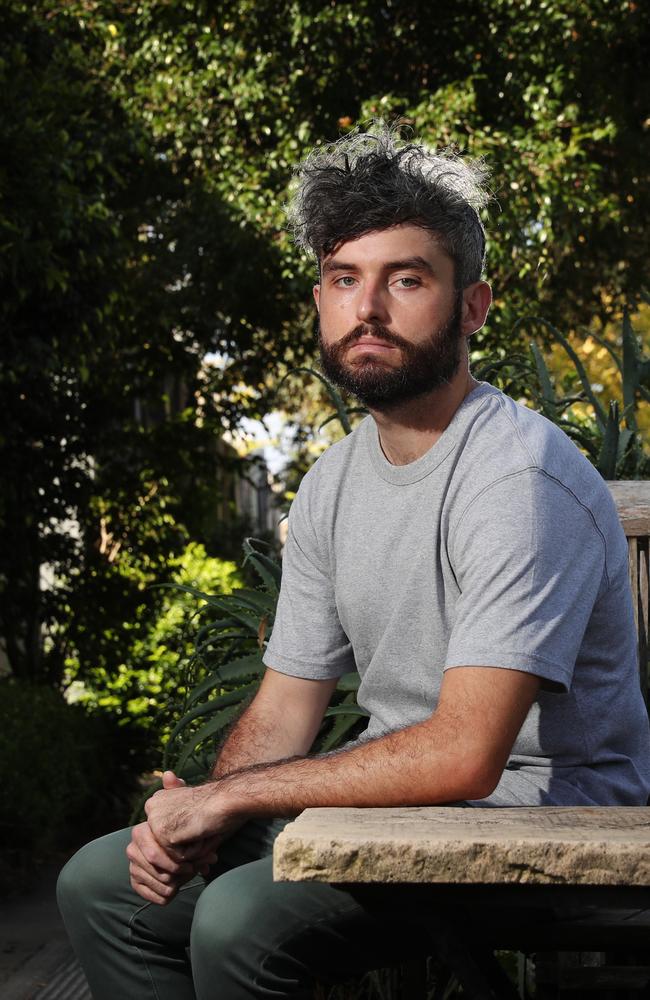
For a long time, Blaine felt “ruined’’ by the crash. To him, the event now seems both a really long time ago and like it was yesterday.
“I spent five years writing about it and thinking about it constantly, so my sense of it is probably different to the other survivors,’’ he says.
“There is no closure. I will always carry the trauma of the car crash and grief for the mates that I lost. Accepting this burden, rather than pretending it didn’t exist, was the turning point in my recovery from depression.’’
In some ways, his mental health therapy made him address issues from his childhood “that most people keep bottled up their entire lives’’. He now says he is happier in 2021 than at any time since the accident.
Blaine’s biggest stress and anxiety about the book was how it would be perceived by the others involved. He has spoken to those involved to get their permission, including Henry Keevers’ mother Melissa.
“I was expecting a lot of corrections but she (Melissa) wrote me the most beautiful one-paragraph email telling me she laughed and cried a lot and it brought back a lot of memories. But she loved reading it and loved me as a person.
“After all this time thinking about how she might respond, it was so simple. It was a massive weight lifted. If she was comfortable with it, then it was the biggest test I had to pass.’’
Car Crash, a Memoir by Lech Blaine, published by Black Inc. Books $33, is out March 30. Blaine will attend an event at Souths Leagues Club, West End, Brisbane, through Avid Reader on April 20 hosted by author Trent Dalton.
Originally published as Seven boys got into this car, only one walked away unscathed



